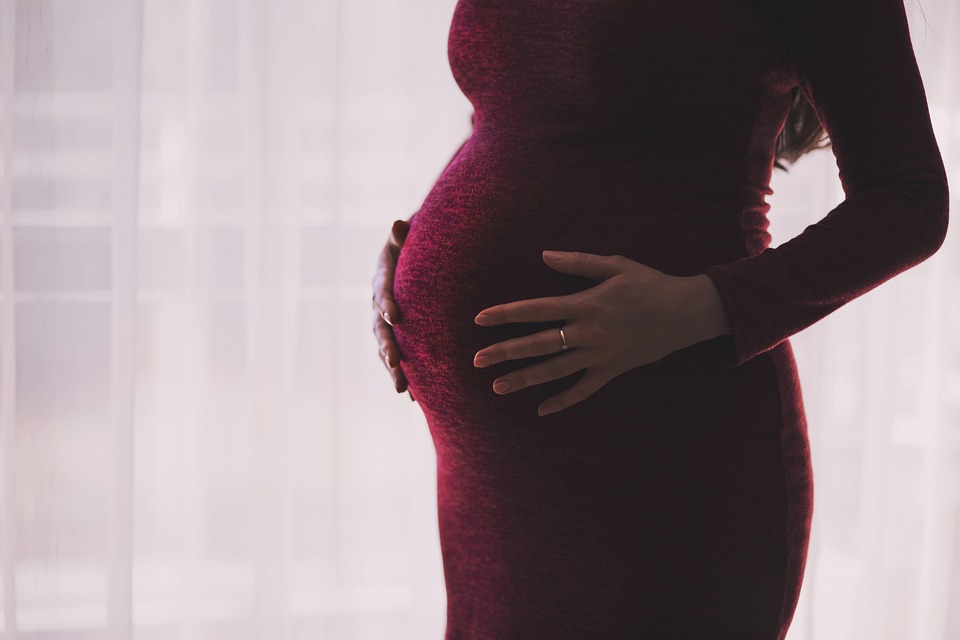
It is possible to happen, but it is not usually so. Your chances of getting pregnant immediately after menstruation depends on how short your menstrual cycle is and how long your menstrual cycle lasts. One of your ovaries releases ovum 12 to 14 days before menstruation begins (ovulation). The first day of your menstrual period, when your bleeding starts, is considered the first day of your menstrual cycle. If you have a 28-day cycle, ovulation can usually occur anytime between its 12th and 16th days.
During your menstrual period, the egg is usually developing to be released in the middle of the menstrual cycle. The time it takes for the ovum to mature in the ovary can vary. This means that your ovulation can also be different according to each cycle. If your menstrual cycle is short, for example 22 days and if your period lasts for seven days, you can ovulate only a few days after menstruation. Keep in mind that sperm can live up to seven days in the fertile cervical mucus. So if you ovulate a few days earlier than normal, there is a possibility of you becoming pregnant.
However, sperm is more likely to survive for two to three days. If fertile cervical fluid is not present, it survives for a short time. Most pregnancies stop five days before ovulation and intercourse on the day of ovulation. In order to conceive, your egg needs to be fertilized within 12 to 24 hours of ovulation.
It is also possible to consider breakthrough bleeding, spotting that occurs during the period from one menstrual period to another. In such a situation, you may have bleeding during fertile days. If you have bleeding between periods from one period to another, tell your doctor.
Now I am going to tell you here how does the menstrual cycle work:
Your menstrual cycle is under the control of various hormones. Due to the changes in these hormones every month, there is bleeding from the uterus, which is called menstruation.
While males produce sperm every day throughout their lifetime, females are born with all the eggs of their lifetime. These eggs are stored in their ovaries. You may have been born with 10 to 20 lakh eggs at birth, but in your lifetime only a few eggs will come out of the ovaries.
This collection of eggs in the ovary decreases over time. When your menstruation starts, usually at the age of 12 to 13 years, then only three lakh eggs are viable. At least one of these eggs matures during every menstrual cycle, and comes out of the ovary during ovulation. The ovum is captured by the ferned end of the fallopian tube, and is gently carried forward to the uterus like a light wave.
If the sperm fertilizes the ovum during this journey, it remains there when it reaches the uterus. In the womb it develops as an infant and placenta. If fertilization does not occur, the egg is ejected along the lining of the uterus when periods begin.
Normal menstrual cycle
The average menstrual cycle is from 28 to 29 days. It is calculated from the first day of menstruation to the day before the next menstruation begins. The cycle of some women is quite short, lasting only 21 days. At the same time, some menstrual cycles are also prolonged to 35 days.
It is also common to increase or decrease the duration of the monthly cycle every month. Milky white discharge from the vagina is normal between one menstrual period. During the menstrual cycle, there is a change in the consistency of secretions when the level of the hormone increases and decreases.
As you get older and you reach around menopause, you may find changes in the duration of your menstrual cycle. Your menstrual cycle starts decreasing as you age. The closer you get to menopause, the more changes you can see in your menstrual cycle. It may be that your menstruation is delayed by several months or it starts coming after two or three weeks.
If you are under 40 years of age and there is a long gap from one menstrual period to another, or if you think the period has stopped completely, see your doctor. She may ask you to have some blood tests done. If you have bleeding in the middle of the menstrual cycle or after sexual intercourse, see your gynaecologist.
The use of certain contraceptive methods, such as hormone injections and intrauterine devices, etc. can cause irregular bleeding. However, if you do not use such measures, it is better to get your investigation done.
What happens during ovulation?
When estrogen levels rise, follicle stimulating hormone levels temporarily decrease and then rise again. With this increase, the level of luteinizing hormone produced in the pituitary gland also increases rapidly.
The luteinizing hormone itself induces ovulation. During ovulation, the most mature egg exits its sac and moves away from the ovary. The egg is immediately caught at the end of the fallopian tube. Generally, what your cervix looks like is thick, blurred mucosa, or cervical mucus. You can see this mucus on your underwear or while wiping after urination.
Estrogen changes the mucus immediately before ovulation, so that it becomes thin, transparent and flexible. You yourself may have noticed this change in Schlemm. This fertile mucus allows the sperm to swim from the cervix to the fallopian tubes inside and above the uterus, where fertilization can occur.